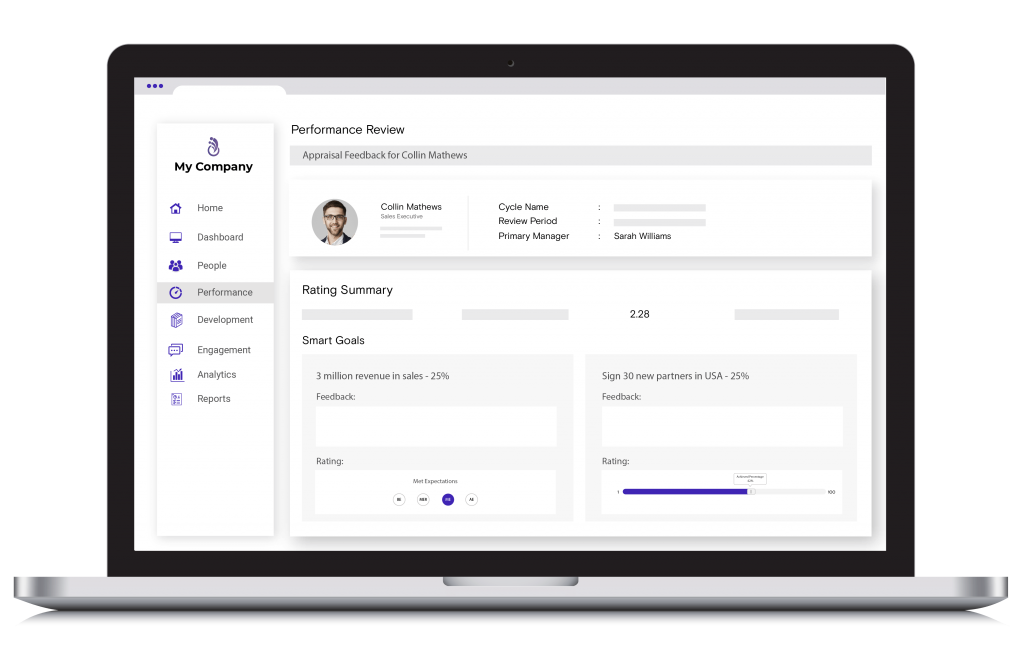Effective Performance Feedback for Employee and Manager
Performance feedback is a vital part of employee engagement and an opportunity for managers and employees to improve their performance. Performance feedback has evolved from the annual appraisal system to the more frequent two-way conversations. Also, feedback can no longer be restricted to the direct reports but the managers and supervisors. Therefore, an effective performance appraisal can expand the coverage to everyone in the organization.
To start with, promote consistent communication. Frequent communication ensures employees feel heard and prevents them from feeling discontented. Encouraging employees to share feedback for managers is a great way to initiate and continue essential conversations in the workplace.
The Importance of upward Feedback
Managers play a critical role in the employee experience, which makes managers more accountable for the employee’s performance. The only way to do that is for managers to encourage their direct reports to provide upward feedback and have follow-up meetings to foster a more collaborative relationship. When the employees do not get a chance to express their opinions or feelings, employee retention becomes challenging.
Upward feedback also gives managers an update on issues that usually go unnoticed. Studies show that no more than 25% of employees told their managers that they felt stressed. It is vital to give employees a forum to speak and be heard. They need a safe space to discuss their challenges and work on ways to improve their work-life.
However, before introducing employee feedback to their managers, it would help educate them on approaching the upward feedback process. The organization as a whole should inculcate this practice to ensure a positive work culture. Here are a few tips on how to give feedback to managers.
Prompt Feedback
Feedback should not be delayed. For a positive outcome from manager feedback, it must be given immediately. Employees waiting for the right moment may never get a chance to give feedback. Delayed feedback loses its impact and is hard to follow through.
Ask for guidance
Employees must feel comfortable telling their managers when they need more explicit instructions and guidance. It calls for an initiative from the employee and a proactive approach. An employee could ask their manager if they could have regular check-ins. Asking for input on the employee’s expectations and if they are on track is a step towards a better employee-manager relationship. It lets the managers know that they need to guide the employee and ensure no communication gap. Employees gain support and direction from their managers and establish a level of confidence.
Words of appreciation
More often than not, employees seek recognition but fail to realize that their managers may need some appreciation, too. A public thank you for being supportive can go a long way to a healthy work relationship between the manager and the employee. Managers tend to return the favor and publicly appreciate the work done by the employee.
Admit to feelings of stress
Feeling overwhelmed at work is quite commonplace, especially in these work from home situations. Expressing these feelings to the manager in a professional and straightforward manner will give the manager a better idea of how much is already on the employee’s plate. Expressing feelings of stress to the manager is not a sign of weakness. On the contrary, it is a sign of honesty and opens the door to adjusting the workload. The objective is to ensure that the employees perform at their best. Therefore, it is essential to acknowledge what they can and can’t handle.
Offer Constructive Feedback
Offering feedback to managers can be daunting. It would help if employees started the process courteously by asking if they may give some feedback. It prepares the manager and sets the tone of the exchange. Always start with positive feedback, and offer feedback without making it personal. It must not be about the manager but about certain aspects of their work framed within a specific context. It also fosters a growth mindset.
These are a few approaches to take to start the upward feedback process. One of the core principles of effective performance feedback is two-way conversations. All these approaches apply not only to managers but employees, as well. This is where the 360-degree feedback comes into play. The 360-degree feedback enables self-evaluation, peer-to-peer feedback, manager to direct reports, direct reports to managers, thereby establishing a holistic feedback system.
How can HR support two-way Feedback?
HR departments can train the managers to be receptive to feedback from their direct reports. HR is also in the position to ensure that upward feedback is acted on quickly as a way to improve team performance.
Employees also need to learn how to offer upward feedback and be assured that they need not fear reprisals. Empowering employees to provide feedback also creates an inclusive work culture. Employees feel trusted and valued, leading to more openness in their input.
Conclusion
Organizations would do well to adopt performance management solutions that encourage multi-level feedback. Additionally, employee engagement and retention become more straightforward if they offer frequent review cycles, automatic notifications, and insightful performance reports.
Performance Review Trial/Demo Link:
Trial Link –> Click here
Demo Link –> Click here
Product Pricing –> Click here
Product Link –> Click here

